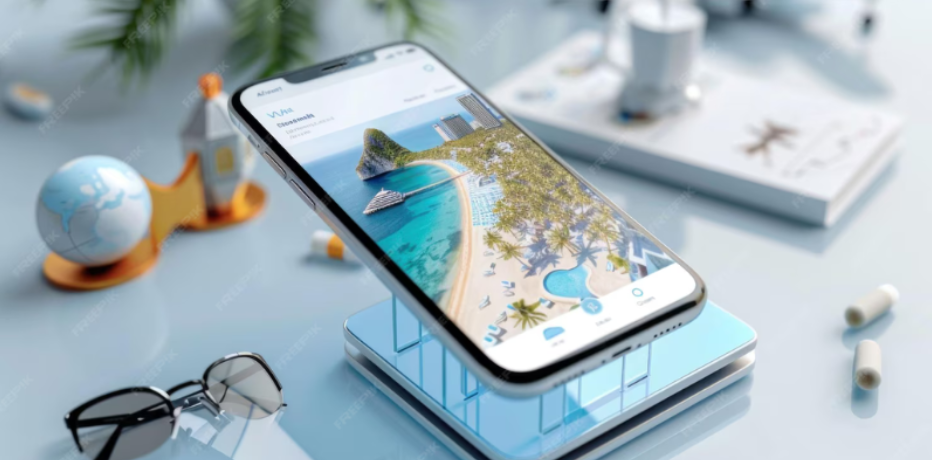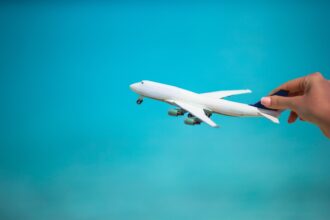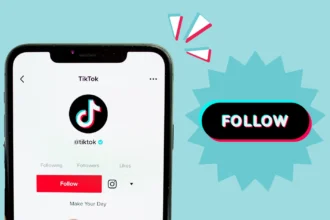The digital trends are also transforming the travel industry, offering innovative and engaging experiences to users. Along with these, the industry is becoming more personal than ever.
- How Hyper-Personalization Changing User Expectations?
- 1. Real-Time Relevance
- 2. Context-Aware Suggestions
- 3. Predictive Help
- 4. Effortless Planning
- 5. Human-Like Understanding
- What Makes a Travel App Truly Personal?
- Why Businesses Need to Adapt Fast and What They Can Do?
- The Future of Smart and Personalized Travel
- Conclusion
The users no longer want apps that just book flights or hotels. They want something that can act like a travel partner, one that understands their preferences and can assist in travel planning.
Following such shifting expectations, travel apps are being assistants that plan, remind, and recommend. From suggesting hidden beaches to recommending restaurants nearby, these apps let users prepare their itinerary and make their travel decisions quickly.
The feature that is making this possible is Hyper-personalization. It uses tech upgrades to create experiences that feel designed for each person. A smart travel app can learn from what a traveler likes and predict what they’ll need next.
For travel businesses, focusing on such a shift and adopting hyper-personalization is no longer an option, but is essential.
How Hyper-Personalization Changing User Expectations?
Modern-day Travelers have their own set of expectations when it comes to travel apps. They’re no longer impressed by simple recommendations based on search history.
Instead, they expect the travel apps to act in real time, offer assistance whether it is for travel booking, hotel booking, or any other scenario, and make their journeys smoother from start to finish.
Hyper-personalization focuses on giving users exactly what they require at the right moment. It uses data, artificial intelligence, and behavior patterns to make suggestions that feel relevant, not random.
Here’s how it’s shaping what users now expect:
1. Real-Time Relevance
People want instant and relevant responses. If a flight gets delayed, they expect the app to suggest nearby food or entertainment outlets or other options.
If the weather changes, it should suggest the changes in plans with alternatives. Apps that react in real time build trust and keep users engaged.
2. Context-Aware Suggestions
Modern travelers don’t want one-size-fits-all options. They prefer apps that understand who they are and what they’re doing.
A solo traveler might see adventure activities, while a family might see nearby kid-friendly attractions. Context-based suggestions make apps feel smarter and more human.
3. Predictive Help
Travelers love it when apps can help plan their journey. AI can analyze past behavior to predict what users will do next.
For example, it might remind someone to renew travel insurance or suggest adding a car rental right after booking a flight. Predictive help saves time and effort.
4. Effortless Planning
Users don’t want to plan every detail themselves. They expect apps to organize schedules, manage budgets, and adjust plans automatically.
A travel app that updates itineraries or recommends flexible bookings shows it understands the traveler’s needs.
5. Human-Like Understanding
The best apps communicate simply and naturally; they don’t just rely on chatbots or in-app tools to communicate with users. They sound friendly and respond with care.
For example, after a long flight, an app might suggest nearby spas or quiet cafes to relax. This small attention to detail creates emotional connection and comfort.
What Makes a Travel App Truly Personal?
The best travel apps don’t provide many choices on a single screen to choose from. But they focus on simplifying the process and showing the features or options that matter most to the user.
Here are some features that can be built with the help of an experienced travel app development company and can make a travel app truly personal.
1] AI-Based Itinerary Planning
Travel Apps can use AI to build flexible schedules that update automatically when plans change. If the flight is late, the app can suggest nearby attractions to fill the time.
2] Smart Budgeting
Not only the route and itinerary planning, but travel apps should be able to track spending and show affordable activities or stays that match the user’s preferences.
3] Location Awareness
The travel apps can be personalized with the help of GPS support. Through this, the users can receive nearby recommendations in real time, whether it’s a coffee shop, emergency service, or local market.
4] Cross-Device Syncing
A key feature that can help personalize the app is through cross-device syncing. Travelers must be able to switch devices without losing information. This creates consistency and reliability.
These features help travelers plan easily, find alternatives, and be stress-free throughout their trip. Hence, it is recommended for the travel companies to hire mobile app developers who specialize in predictive design and AI-based personalization can create experiences that users trust and return to.
Why Businesses Need to Adapt Fast and What They Can Do?
Personalization is becoming the core of every travel app. The leading travel and booking apps are investing in personalization to offer experiences to their users and to build loyalty.
When travelers feel understood, they return to the same app for future trips. Hence, implementing feature upgrades to your app that can remember favorite hotels or preferred meal types can create a significant impact.
For businesses, this is more than a tech upgrade. It’s about putting users first. The better the personalization, the stronger the connection.
To stay ahead, travel entrepreneurs need to focus on three key factors, including:
► Safety and Transparency
Travelers share personal data when they book their trips or plan their vacations. Hence, they will only proceed with your app when they feel safe.
Hence, when opting for hyper-personalization, apps must explain clearly how user data is used and also provide the users control over their data.
► Simplicity and Convenience
The travel app should feel easy to use. The personalization should not result in making the app too heavy or lag when a user switches between features.
Every feature should save time, not add steps. An app with fewer clicks and faster responses keeps users happy and allows better scalability.
► Collaboration
To incorporate personalization in travel apps, you can plan to partner with local guides, hotels, and airlines can create a complete experience for travelers.
This not only adds value but also keeps users engaged in a strategically planned ecosystem.
The Future of Smart and Personalized Travel
The future of travel apps will feel almost human. They’ll plan entire trips, track budgets, and manage changes automatically. Apps will learn from user behavior and take care of small details without being asked.
Imagine this: you open your app, enter your location, and it automatically generates an entire itinerary that doesn’t require any amendments.
It suggests destinations based on your free days, shows flight options from your favorite airlines, and builds a full itinerary within minutes. Once you’re traveling, it updates plans according to weather and local events.
This is the future where travel technology is moving toward: effortless, connected, and hyper-personalized. Apps that offer this level of convenience will become essential, not optional.
Conclusion
Hyper-personalization is changing travel for the better. It’s helping apps understand people instead of just serving them.
The travel businesses that listen, learn, and adapt to individual needs will lead the way in 2025 and beyond. They’ll create journeys that feel smooth, safe, and personal from start to finish.
In the future, the best travel apps won’t just get people from one place to another. They’ll make every part of the journey feel like it was made just for them.

















